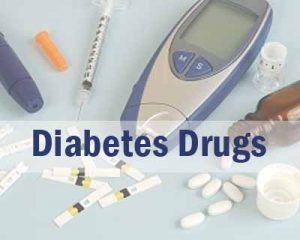- Home
- Editorial
- News
- Practice Guidelines
- Anesthesiology Guidelines
- Cancer Guidelines
- Cardiac Sciences Guidelines
- Critical Care Guidelines
- Dentistry Guidelines
- Dermatology Guidelines
- Diabetes and Endo Guidelines
- Diagnostics Guidelines
- ENT Guidelines
- Featured Practice Guidelines
- Gastroenterology Guidelines
- Geriatrics Guidelines
- Medicine Guidelines
- Nephrology Guidelines
- Neurosciences Guidelines
- Obs and Gynae Guidelines
- Ophthalmology Guidelines
- Orthopaedics Guidelines
- Paediatrics Guidelines
- Psychiatry Guidelines
- Pulmonology Guidelines
- Radiology Guidelines
- Surgery Guidelines
- Urology Guidelines
Diabetes drug Metformin may promote brain repair after stroke in females

Diabetes drug Metformin may promote brain repair after stroke in females, finds a new study.
Researchers at Donnelly Centre for Cellular and Biomolecular Research have found that Metformin a widely prescribed drug to treat diabetes, promotes repair in adult female brains after stroke.They further found that female sex hormone estradiol plays a key role in promoting brain repair and opens the door to the development of more effective treatments.
Their findings are described in a study to be published in the journal Science Advances.
The research builds on a previous study, in collaboration with Freda Miller's group at the Hospital for Sick Children in Toronto, which sought to find treatment for childhood brain injury. They found that the widely prescribed drug metformin can induce brain repair and improve motor function in newborn mice that had a stroke. Metformin works by activating stem cells in the brain, which can self-renew and give rise to different types of brain cells to replace those killed by injury.
Because brain injury in early life can lead to lifelong cognitive problems, the researchers now wanted to find out if metformin also promoted cognitive recovery.
"You can fix a hole in someone's brain but if they don't function better it's irrelevant to them," says Morshead.
Graduate student Rebecca Ruddy induced stroke in newborn mice, followed by daily metformin treatment before the animals were tested in a puzzle box test that measured learning and memory.
To the researchers' delight, metformin was able to activate neural stem cells in the brain and promote cognitive recovery. But the data also revealed something unexpected. Metformin did not affect all the animals in an equal manner. It only worked in adult females.
"When we first looked at the data, we did not see the benefit of the metformin treatment," says Morshead. "Then we noticed that adult females tended to do better than the males."
A closer look revealed that metformin selectively activated the adult female neural stem cells while having no effect on the males. This turned out to be due to the female sex hormone estradiol which somehow enhances the stem cells' ability to respond to metformin. Conversely, the male hormone testosterone appears to inhibit this process. When female mice had their ovaries removed and lacked the female sex hormone, the stem cells did not respond to metformin treatment.
"To know that there are both age and sex-dependent effects -- it has such implications for treatment and therapeutics," says Morshead.
The findings come at a time when scientists are reckoning with the data bias that is skewed against women due to the predominant use of male animals in research.
"The thinking was that we're going to study males because everything you need to know is found in the male brain, and then the female brain just complicates things with hormones," says Morshead. "It's very misguided and troublesome for advancing neurological health."
As animal research informs human studies, the sex bias is believed to have led to failed clinical trials, misdiagnosis and inappropriate therapies for women, as highlighted in a recent article in Science.
Human trials of repurposing metformin as a brain repair drug are ongoing, with a small study at Toronto's SickKids hospital, testing it in children who suffered brain injury, led by Morsehad's collaborators Donald Mabbot and Dr. Eric Bouffet, directors of SickKids' Neuroscience and Mental Health and Brain Tumour programs, respectively. Although the current patient cohort is too small to detect any sex effects, the plan is to increase the number of patients to see if sex also affects treatment outcome in people, said Morshead.
For more details click on the link: DOI: 10.1126/sciadv.aax1912

Disclaimer: This site is primarily intended for healthcare professionals. Any content/information on this website does not replace the advice of medical and/or health professionals and should not be construed as medical/diagnostic advice/endorsement or prescription. Use of this site is subject to our terms of use, privacy policy, advertisement policy. © 2020 Minerva Medical Treatment Pvt Ltd